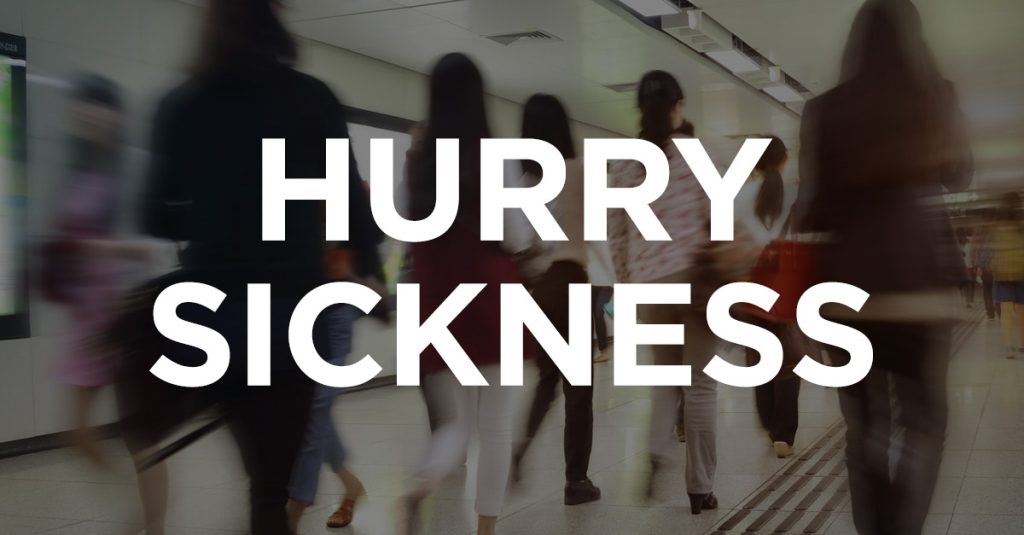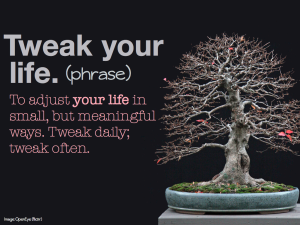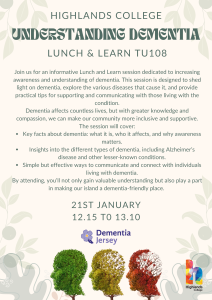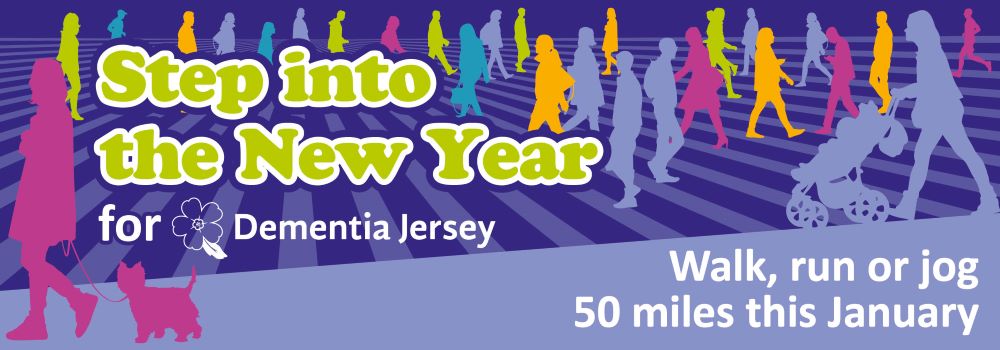Mental Health & Well-being Weekly
The Positive Mental Health and Well-being resource file on Teams continues to grow impressively, now featuring approximately 100 articles covering a diverse range of topics—from strategies to boost productivity to coping with the challenges of short life spans.
Additionally, we are transforming these articles into concise leaflets, enabling staff to easily access and retain the key insights. Below is an outstanding article sourced from the highly regarded Healthline.com.
.
 .
Hurry Sickness: Recognizing and Addressing the Pressure to Always Rush
Hurry sickness, while not a medical condition, refers to a pressing need to rush through tasks and maximise every moment. This “time urgency” often stems from modern technology, which creates the illusion of efficiency but instead adds to our workload.
With smartphones and laptops enabling constant connectivity, it becomes easy to over-commit, leading to stress, exhaustion, and a sense of unfulfillment. The more people attempt to multitask, the more likely they are to neglect important activities or make mistakes, further exacerbating their stress levels.
Recognizing Hurry Sickness
This condition often manifests as a need to multitask or a constant drive to stay productive. Signs include rushing through conversations, chores, and meals; speeding through tasks only to redo them due to errors; obsessively calculating time to fit in more activities; or feeling irritable when facing delays.
It’s common for those affected to experience anxiety about wasted time, worrying about incomplete tasks or lost productivity. The emotional toll can be significant, resulting in constant stress and simmering anxiety.
People often feel inadequate for not meeting self-imposed, unrealistic expectations.
This can lead to irritability, guilt, and even anger, which may harm relationships. For instance, snapping at loved ones or neglecting their needs in favour of “getting things done” can erode emotional connections and cause lasting damage.
Physical Effects of Rushing
Hurry sickness often leads to poor self-care as people sacrifice essentials like sleep, nutrition, and exercise. Chronic stress can result in fatigue, headaches, stomach issues, and a weakened immune system. It also increases the risk of burnout and heart-related issues, particularly for individuals exhibiting traits like time urgency and impatience.
How to Slow Down
Slowing down may feel counterproductive, but it can significantly improve mental and physical well-being. Steps to combat hurry sickness include:
.
Hurry Sickness: Recognizing and Addressing the Pressure to Always Rush
Hurry sickness, while not a medical condition, refers to a pressing need to rush through tasks and maximise every moment. This “time urgency” often stems from modern technology, which creates the illusion of efficiency but instead adds to our workload.
With smartphones and laptops enabling constant connectivity, it becomes easy to over-commit, leading to stress, exhaustion, and a sense of unfulfillment. The more people attempt to multitask, the more likely they are to neglect important activities or make mistakes, further exacerbating their stress levels.
Recognizing Hurry Sickness
This condition often manifests as a need to multitask or a constant drive to stay productive. Signs include rushing through conversations, chores, and meals; speeding through tasks only to redo them due to errors; obsessively calculating time to fit in more activities; or feeling irritable when facing delays.
It’s common for those affected to experience anxiety about wasted time, worrying about incomplete tasks or lost productivity. The emotional toll can be significant, resulting in constant stress and simmering anxiety.
People often feel inadequate for not meeting self-imposed, unrealistic expectations.
This can lead to irritability, guilt, and even anger, which may harm relationships. For instance, snapping at loved ones or neglecting their needs in favour of “getting things done” can erode emotional connections and cause lasting damage.
Physical Effects of Rushing
Hurry sickness often leads to poor self-care as people sacrifice essentials like sleep, nutrition, and exercise. Chronic stress can result in fatigue, headaches, stomach issues, and a weakened immune system. It also increases the risk of burnout and heart-related issues, particularly for individuals exhibiting traits like time urgency and impatience.
How to Slow Down
Slowing down may feel counterproductive, but it can significantly improve mental and physical well-being. Steps to combat hurry sickness include:
 A_AllStaffSharedResources -> Mental Health and Wellbeing Resourses (might be in the ‘hidden channels’) -> Mental Health and Wellbeing Resourses (from the tab)
A_AllStaffSharedResources -> Mental Health and Wellbeing Resourses (might be in the ‘hidden channels’) -> Mental Health and Wellbeing Resourses (from the tab)


Understanding Dementia Lunch & Learn – 21/01/25 – TU225 (new room allocation!) – 12.15 to 13.10 Dementia Jersey will be delivering two valuable sessions one on Understanding Dementia and one on Brain Health. The first session focuses on understanding dementia, while the second session, scheduled for 14 March, will explore brain health in depth. An invitation will go out later via TLD. .
Step into the New Year for Dementia Jersey! Looking for a challenge to kickstart 2024? Join the 50 Mile Challenge this January to raise vital funds for Dementia Jersey while boosting your fitness! Walk, run, or skip your way to 50 miles throughout the month—just 1.6 miles a day. Stay active, explore Jersey, and support people living with dementia. Sign up via RaceNation, track your miles, and aim for the £100 fundraising goal. Let’s make every step count!
Hurry Sickness Is a Thing – Here’s Why You Might Want to Slow Down
. .
Hurry Sickness: Recognizing and Addressing the Pressure to Always Rush
Hurry sickness, while not a medical condition, refers to a pressing need to rush through tasks and maximise every moment. This “time urgency” often stems from modern technology, which creates the illusion of efficiency but instead adds to our workload.
With smartphones and laptops enabling constant connectivity, it becomes easy to over-commit, leading to stress, exhaustion, and a sense of unfulfillment. The more people attempt to multitask, the more likely they are to neglect important activities or make mistakes, further exacerbating their stress levels.
Recognizing Hurry Sickness
This condition often manifests as a need to multitask or a constant drive to stay productive. Signs include rushing through conversations, chores, and meals; speeding through tasks only to redo them due to errors; obsessively calculating time to fit in more activities; or feeling irritable when facing delays.
It’s common for those affected to experience anxiety about wasted time, worrying about incomplete tasks or lost productivity. The emotional toll can be significant, resulting in constant stress and simmering anxiety.
People often feel inadequate for not meeting self-imposed, unrealistic expectations.
This can lead to irritability, guilt, and even anger, which may harm relationships. For instance, snapping at loved ones or neglecting their needs in favour of “getting things done” can erode emotional connections and cause lasting damage.
Physical Effects of Rushing
Hurry sickness often leads to poor self-care as people sacrifice essentials like sleep, nutrition, and exercise. Chronic stress can result in fatigue, headaches, stomach issues, and a weakened immune system. It also increases the risk of burnout and heart-related issues, particularly for individuals exhibiting traits like time urgency and impatience.
How to Slow Down
Slowing down may feel counterproductive, but it can significantly improve mental and physical well-being. Steps to combat hurry sickness include:
.
Hurry Sickness: Recognizing and Addressing the Pressure to Always Rush
Hurry sickness, while not a medical condition, refers to a pressing need to rush through tasks and maximise every moment. This “time urgency” often stems from modern technology, which creates the illusion of efficiency but instead adds to our workload.
With smartphones and laptops enabling constant connectivity, it becomes easy to over-commit, leading to stress, exhaustion, and a sense of unfulfillment. The more people attempt to multitask, the more likely they are to neglect important activities or make mistakes, further exacerbating their stress levels.
Recognizing Hurry Sickness
This condition often manifests as a need to multitask or a constant drive to stay productive. Signs include rushing through conversations, chores, and meals; speeding through tasks only to redo them due to errors; obsessively calculating time to fit in more activities; or feeling irritable when facing delays.
It’s common for those affected to experience anxiety about wasted time, worrying about incomplete tasks or lost productivity. The emotional toll can be significant, resulting in constant stress and simmering anxiety.
People often feel inadequate for not meeting self-imposed, unrealistic expectations.
This can lead to irritability, guilt, and even anger, which may harm relationships. For instance, snapping at loved ones or neglecting their needs in favour of “getting things done” can erode emotional connections and cause lasting damage.
Physical Effects of Rushing
Hurry sickness often leads to poor self-care as people sacrifice essentials like sleep, nutrition, and exercise. Chronic stress can result in fatigue, headaches, stomach issues, and a weakened immune system. It also increases the risk of burnout and heart-related issues, particularly for individuals exhibiting traits like time urgency and impatience.
How to Slow Down
Slowing down may feel counterproductive, but it can significantly improve mental and physical well-being. Steps to combat hurry sickness include:
- Take Walks: Brief breaks and a change of scenery can reduce anxiety and improve focus.
- Practice Mindfulness: Staying present helps reduce distractions and enhances productivity.
- Prioritize Self-Care: Ensure proper rest, hydration, nutrition, and relaxation to maintain overall health.
- Set Boundaries: Learn to say no to excessive responsibilities and focus on what truly matters.
- Ask for Help: Delegating tasks and seeking support can ease your workload.
How to Find the Resource Files on Teams
Weekly Affirmation


Upcoming Events
All January – Step into the New Year with Dementia Jersey 21/01/25 – Understanding Dementia – Awareness Lunch & Learn 31/01/25 – National Hot Chocolate Day – Details to follow 👀Understanding Dementia Lunch & Learn – 21/01/25 – TU225 (new room allocation!) – 12.15 to 13.10 Dementia Jersey will be delivering two valuable sessions one on Understanding Dementia and one on Brain Health. The first session focuses on understanding dementia, while the second session, scheduled for 14 March, will explore brain health in depth. An invitation will go out later via TLD. .

Step into the New Year for Dementia Jersey! Looking for a challenge to kickstart 2024? Join the 50 Mile Challenge this January to raise vital funds for Dementia Jersey while boosting your fitness! Walk, run, or skip your way to 50 miles throughout the month—just 1.6 miles a day. Stay active, explore Jersey, and support people living with dementia. Sign up via RaceNation, track your miles, and aim for the £100 fundraising goal. Let’s make every step count!

